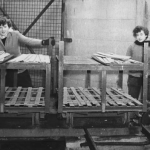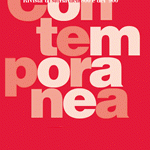Sektion Soziologie der Kindheit in der Deutschen Gesellschaft für Soziologie (DGS); Hochschule Magdeburg-Stendal
Ort: Hochschule Magdeburg-Stendal, Stendal
Zeit: 11.-13.10.2018
Anmeldung: bis 15.09.2018
Wie wirken sich gesellschaftliche Umbrüche auf die Strukturen der Kindheit sowie auf kindliche Erfahrungen aus? Was trägt eine von Kindheit und der sozialen Position von Kindern ausgehende Beschreibung gesellschaftlicher Umbrüche zu deren Analyse bei? Ausgehend von diesen Fragen beschäftigt sich die interdisziplinär angelegte Jahrestagung mit dem Verhältnis von Kindheit und gesellschaftlichen Umbrüchen.
Programm
DONNERSTAG, 11.10.18
- 13:30 Uhr: Grußworte und kurze inhaltliche Einführung
- 14:00 Uhr: Erhard Stölting (Berlin): Keynote: The Experience of Social Upheavals in a Sociological Perspective
Transformationen intergenerationaler familialer Beziehungen in Umbrüchen
- 15:15 Uhr: Ekatarina Chicherina (Wuppertal): Children’s Life Planning under socialist Tranformations across three Generations. Example of Kyrgyzstan
- 16:00 Uhr: Doris-Niederberger und Alexandra König (Wuppertal, Duisburg): Transnational Labor Migration – (Re-)Negotiating Generational and Gender Solidarities; Weiterlesen … (PDF)

![Mandl_Henriette_Stella_Kadmon_Brautkleid n1.eb105 (c) Österreichische Exilbibliothek [Zum Vollbild anklicken]](https://salon21.univie.ac.at/wp-content/uploads/n1.eb105_mandl_henriette_stella_kadmon_brautkleid_klein-150x150.jpg)




